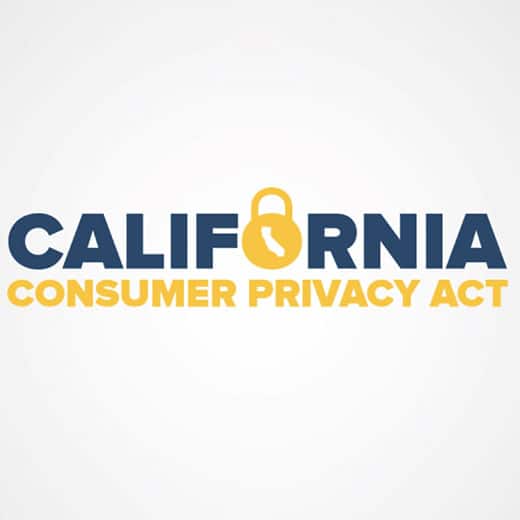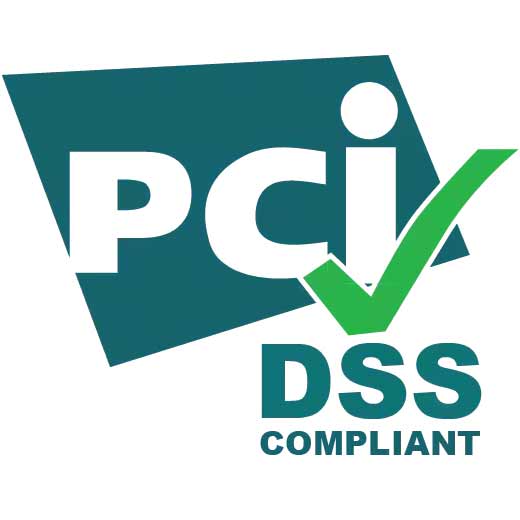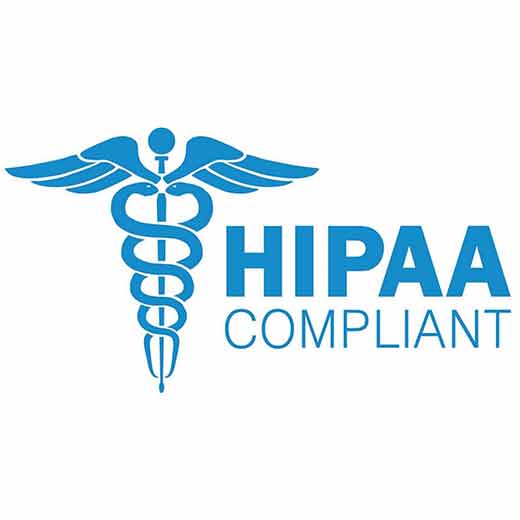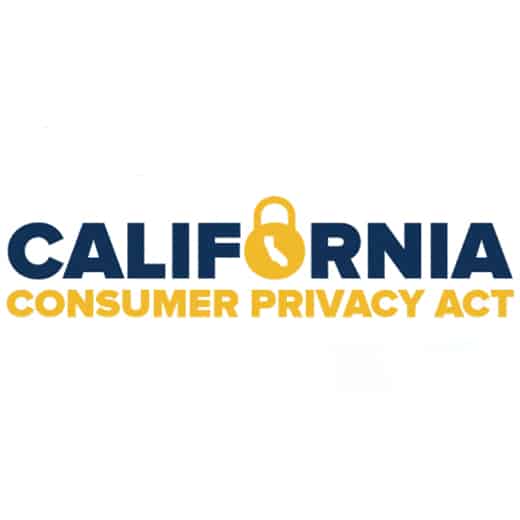CCPA/CPRA
CCPA and CPRA Services
- Build customer trust and confidence in American markets
- Gain peace of mind with CyberCrest expert compliance assurance
- Avoid costly fines and penalties for violations

Starting your CCPA Journey? Download our Top 5 Tips for Achieving CCPA Compliance!
End-to-End CCPA Compliance Service
CCPA Compliance Methodology
Gap Assessment
CyberCrest will conduct a gap assessment and develop a path towards certification
Remediation Support
CyberCrest will assist in developing documentation and support control implementation to achieve compliance
3PAO Support
CyberCrest will works with your organizaiton to support 3PAO audit support
Framework Maintenance
CyberCrest will provide ongoing FedRAMP framework maintenance and ongoing compliance activity support
Related Services
Additional CyberCrest HIPAA Services
HIPAA Risk Assessment
It is used in business process management to increase productivity & efficiency.









Frequently Asked Questions
What is the California Consumer Privacy Act (CCPA)?
The California Consumer Privacy Act (CCPA) is a data privacy law that went into effect on January 1, 2020, and applies to businesses that operate in California or collect personal information about California residents. The CCPA is one of the most comprehensive data privacy laws in the United States and gives California consumers certain rights over their personal information.
Under the CCPA, consumers have the right to:
Know what personal information is being collected about them
Know whether their personal information is being sold or shared, and with whom
Opt-out of the sale of their personal information
Request that their personal information be deleted
Receive equal service and pricing, even if they exercise their privacy rights
The CCPA also requires businesses to provide certain notices and disclosures to consumers, including a privacy policy that explains how the business collects, uses, and shares personal information, as well as a notice at the point of collection that explains the categories of personal information that will be collected and the purposes for which it will be used.
The CCPA applies to businesses that meet certain thresholds, including those that have annual gross revenues over $25 million, those that buy or sell personal information of 50,000 or more consumers, households, or devices, and those that derive 50% or more of their annual revenue from selling consumers’ personal information.
Failure to comply with the CCPA can result in significant fines and penalties. Additionally, the CCPA has inspired other states to consider similar privacy laws, including Virginia and Colorado.
If your business is subject to the CCPA, it is important to take steps to ensure compliance with the law, such as conducting data inventory and mapping, updating privacy policies and notices, and implementing processes to respond to consumer requests. CyberCrest can help businesses navigate the CCPA requirements and develop a comprehensive privacy compliance program.
What is the California Privacy Rights Act (CPRA)?
The California Privacy Rights Act (CPRA) is a state-wide data privacy bill passed into law on November 3, 2020. It works as an addendum to the California Consumer Privacy Act (CCPA), which took effect on January 1, 2020. The CPRA strengthens the rights of California residents, tightens business regulations on the use of personal information, and establishes a new government agency for state-wide data privacy enforcement called the California Privacy Protection Agency (CPPA).
The CPRA introduces a number of new requirements for businesses that collect and process personal information of California residents. These requirements include expanded consumer rights, such as the right to correct inaccurate information, the right to restrict the use of sensitive personal information, and the right to opt-out of the sale of personal information. It also mandates that businesses conduct regular risk assessments and data protection impact assessments and implement appropriate security measures to protect personal information.
The CPRA has a broad scope, applying to any business that collects or processes personal information of California residents and meets certain criteria. These criteria include businesses that have an annual gross revenue over $25 million, businesses that buy, sell or share the personal information of 100,000 or more California residents, and businesses that derive 50% or more of their annual revenue from selling personal information.
The CPRA became fully effective on January 1, 2023, and enforcement is scheduled to begin on July 1, 2023. Businesses that are subject to the CPRA should take steps to ensure compliance with its requirements to avoid penalties and legal action. CyberCrest can provide expert guidance and support to businesses seeking to achieve compliance with the CPRA and other data privacy regulations.
What is CCPA Compliance?
The California Consumer Privacy Act (CCPA) is a landmark privacy law that was enacted in California in 2018 and became effective on January 1, 2020. The law was designed to give California residents more control over their personal information and to enhance their privacy rights.
CCPA applies to businesses that collect, share, or sell personal information of California residents, and have annual gross revenues of at least $25 million, or that buy, sell, or receive the personal information of at least 50,000 California residents, households, or devices annually, or that derive 50% or more of their annual revenues from selling California residents’ personal information.
To achieve CCPA compliance, businesses must take certain steps, such as updating their privacy policies, creating processes to handle data requests from California residents, and ensuring that third-party vendors that handle their data are also in compliance with CCPA.
CCPA requires businesses to disclose what personal information they collect, sell, or share about California residents, and provide them with the ability to opt-out of the sale of their personal information. It also gives California residents the right to access and request the deletion of their personal information.
Businesses must also ensure that they have appropriate security measures in place to protect the personal information they collect from unauthorized access or disclosure.
Failure to comply with CCPA can result in significant penalties, including fines of up to $7,500 per violation. To ensure compliance, businesses can seek the assistance of privacy professionals or consulting firms, such as CyberCrest, which can provide guidance on CCPA requirements and help develop a compliance plan tailored to their specific needs.
What are the CCPA compliance requirements?
The California Consumer Privacy Act (CCPA) is a comprehensive data privacy law that applies to businesses operating in California that collect, share, or sell personal information of California residents. The law came into effect on January 1, 2020, and enforcement began on July 1, 2020.
CCPA compliance requires businesses to fulfill several requirements, which include:
Disclosures: Businesses must disclose to consumers the categories of personal information collected, the purpose for which it is collected, and any third parties with whom the information is shared or sold. This disclosure must be made at or before the point of collection.
Consumer Rights: CCPA gives California residents the right to request that businesses delete their personal information, as well as the right to know what personal information has been collected about them and how it has been used.
Opt-Out: Businesses must provide a clear and conspicuous link on their website homepage titled “Do Not Sell My Personal Information.” This link must enable California residents to opt-out of the sale of their personal information.
Data Security: Businesses must implement reasonable security measures to protect the personal information they collect from unauthorized access, destruction, use, modification, or disclosure.
Training: Businesses must ensure that their employees who handle personal information are trained on the requirements of CCPA and the organization’s privacy policies.
Contracts: Businesses must ensure that their service providers who process personal information on their behalf are also compliant with CCPA and have appropriate contractual provisions in place.
Record Keeping: Businesses must keep records of consumer requests and how they were responded to for at least 24 months.
CCPA compliance requirements may vary depending on the size of the business and the nature of the personal information being collected, shared, or sold. Non-compliance with CCPA can lead to significant penalties and reputational damage for businesses. Therefore, it is essential for businesses to understand their obligations under CCPA and take the necessary steps to comply with the law. CyberCrest can assist businesses in assessing their CCPA compliance and implementing necessary measures to meet the requirements.
What are the differences between CCPA and GDPR compliance requirements?
CCPA (California Consumer Privacy Act) and GDPR (General Data Protection Regulation) are two significant privacy regulations that aim to protect the personal information of individuals. While both regulations share similar principles, there are some key differences between CCPA and GDPR compliance requirements.
Territorial Scope:
The GDPR applies to all companies processing the personal data of individuals located in the European Union (EU), regardless of the company’s location. In contrast, CCPA only applies to businesses operating in California or serving California residents.
Consumer Rights:
Both regulations provide consumers with certain rights over their personal data. GDPR includes rights such as the right to access, correct, delete, and restrict processing of personal data. CCPA provides similar rights, such as the right to access, delete, and opt-out of the sale of personal information, but also includes the right to request information about the sale of their data.
Opt-In vs. Opt-Out:
GDPR requires businesses to obtain explicit consent from individuals before processing their personal data, which means they must opt-in. CCPA, on the other hand, allows individuals to opt-out of the sale of their personal information.
Penalties:
Both regulations have significant financial penalties for non-compliance. GDPR can impose fines up to €20 million or 4% of the company’s global annual revenue, whichever is greater. CCPA penalties can range from $2,500 to $7,500 per violation, with no cap on the total amount.
Privacy Notices:
GDPR requires businesses to provide individuals with detailed privacy notices explaining how their personal data is processed. CCPA also requires businesses to provide a privacy notice to California residents, but the notice must include specific information, such as the categories of personal information collected and sold.
In summary, while both CCPA and GDPR focus on protecting individuals’ personal information, they differ in some key areas such as territorial scope, consumer rights, opt-in/opt-out requirements, penalties, and privacy notices. It is important for businesses to carefully assess the requirements of each regulation and ensure they are in compliance with both, where applicable.
Email List
Contact
- 1084 N. EI Camino Real, Suite B141 Encinitas, CA 92024
© 2023 Cybercrest Compliance Services. All rights reserved!
© 2023 Cybercrest Compliance Services. All rights reserved!

